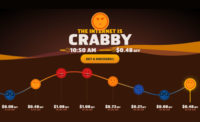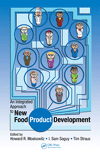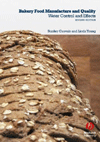The old adage that the baking industry is recession-proof may not be accurate, according to an ABA survey.
The old adage that the baking industry is recession-proof may not be accurate, according to an ABA survey.
Instead, the baking industry might be better described as “recession-resistant,” according to 60% of respondents to a recent non-scientific poll conducted by the American Bakers Association and the members of its Board of Governors.
According to comments by the open-ended question, ABA members note they’re seeing consumers seeking more “bang for their buck” than they have in the past, notes Robb MacKie, ABA’s president and CEO.
“Certainly, consumers are trading from premium products to mainstream ones, and they’re seeing trading a little around the edges from branded to private label,” MacKie says. “There is some concern in that area.”
Kenneth “Chip” Klosterman, ABA chairman, is one baker who’s in that majority.
“I disagree that anything is recession-proof,” says Klosterman, president and CEO of Klosterman Baking Co., Cincinnati. “That said, people have to eat, so in the food business we are recession-proof. However, they don’t have to eat baked products. They don’t have to eat our products so it’s still important for us to give them the taste and the value and nutrition that makes sense for their diets and for their families.”
While nutrition remains important in the purchasing decision of baked goods, value has become a more critical component this year than in the past.
“When times get tough, consumers aren’t necessarily willing to pay for just the benefits on the label,” Klosterman notes. “I think they’re smart shoppers. That doesn’t mean they don’t think nutrition is important, but they are going to spend those dollars more wisely and not pay extra. It all depends on how a product is positioned and what it offers.”
Smaller portions, he adds, seem to be a driver in recent years, especially as more Baby Boomers become Empty Nesters as their children leave home and have families of their own.
In the retail market, Klosterman Baking had responded with wheat and white varieties of “half loaves” and is exploring smaller packs of buns. The company also has seen such consumer-driven trends in nutrition with calcium-fortified products.
“We have had great acceptance and a lot of comments on our half loaves and people asking for smaller bun packages so we’ll have to see if that translates into sales when we get it out into the market,” Klosterman says.
In the foodservice market, where many chains have been hit by rising food prices and softer sales, Klosterman notes smaller products such as mini buns are in demand as chains use portion control to offer more moderately priced, value-driven menu items.
Overall, the baking industry is in a relatively good position in both good and bad economic times, says Lee Sanders, ABA’s senior vice president, government relations and policy affairs.
“At times like these, people look to their basic staples, and baked goods are one of them,” Sanders says. “In addition to taste and value, they’re looking for nutrition for their families and how they can do that economically, and our products are ones that certainly can answer that call.”




